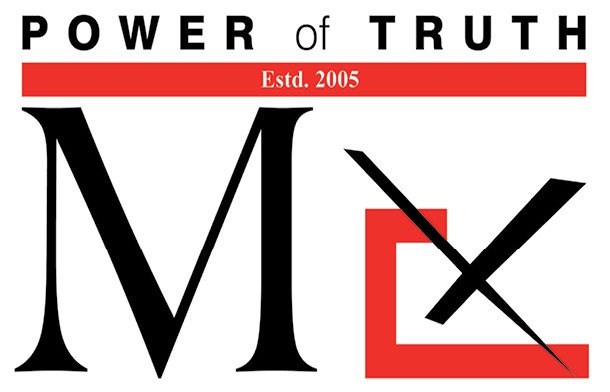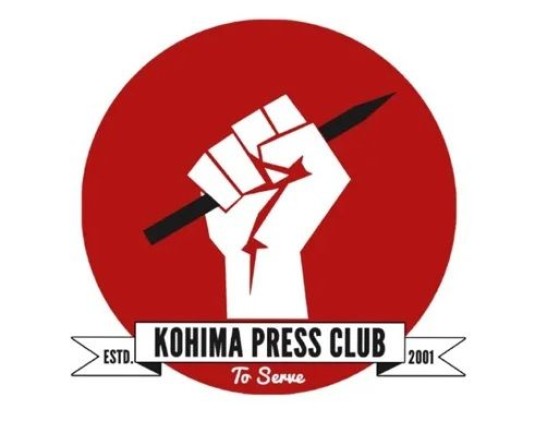
In the past few months, Yahoo! has invited luminaries such as Dr. Stephen Hawking, Senator Hillary Clinton, Former US Vice President, Mr. Al Gore Ms. Oprah Winfrey, Mr. Donald Trump and U2’s Bono to post questions in an open forum on Yahoo! These thought-provoking questions elicit answers (solutions) from across the world. The scope of these questions has encompassed some of the most pressing issues we face today.
Yahoo! India introduced a similar forum to address issues in the Indian sub-continent and this forum opened in India with the Honorable President of India, Dr. A P J Abdul Kalam, posting the first question on Saturday January 13th, 2007.
Aküm Longchari from The Morung Express was invited by Yahoo! to be amongst the first to respond to this question. Below is his response, which can able be accessed at the Yahoo website.
The question that President Kalam posed was: What should we do to free our planet from Terrorism?
Aküm Longchari Response: I appreciate the implication of the question posed by the President of India before us all because as I understand it, the ‘out-of-box solutions’ suggest that the existing paradigm guiding the ‘War on Terror’ has been futile. In fact it has proved counter-productive and one might even add that this paradigm on the ‘War on Terror’ threatens solutions to terrorism.
Terrorism today is constructed as a kind of enemy that cannot be conceptualized in traditional terms. It is a phenomenon built over time, without territory in the traditional sense. The war on terror is therefore mostly a clash of culture, worldview, ideas, narrative, history, chosen glories and chosen traumas.
The War on Terror has been narcissistically obsessed with the ‘other’ and the more walls that we build around us; the more we will have to tear down, when we finally realize that we actually need each other. Hence the endeavor to find out of the box solutions to terrorism is not about who they are, it really is about we are and how we respond to issues of injustice. How we address injustice (of all forms) is decisive to whether we can build a world free of terrorism.
Therefore if we are to explore together the idea of out-of-box solutions to terrorism, then it is quite essential that we first put a human face to it. Naturally this suggestion contravenes the existing paradigm of War on Terror, because all that this War on Terror has done is to create the image of an enemy of the ‘other’ and pursues the idea that purports the efficacy of force, which has only bred more violence.
The lack of critical imagination and the arrogance of power have perpetuated the assumption that the hammer is the only means available to deal with people who disagree with you. The perpetual resort to force manifests a deepening belief in force as a method above all else which inevitably stands out as a monolithic structure.
To make this world free of terrorism, demands that we must make this world free of violence. It is of absolute necessity to address the question of violence with clarity and foresight, because violence is at the root of terrorism. By violence, I mean, state violence, structural violence and other forms of violence that prevents the fullness of a dignified humanity.
Without a doubt, good sense must prevail in recognizing that it is virtually quite impossible for the world to “eliminate” terrorism, or to eliminate the ‘other.’ If our response to terrorism is more violence, that in the final analysis, we would end up being no better, possible even worse.
We need to evolve a new paradigm in which our response to issues of terrorism demands of us to find creative, imaginative and responsive ways to engage with injustices. Such a paradigm must find ways to end violence and its consequences. We must explore new ways to address conflicting interest in more creative, imaginative and peaceful ways, in which the use of force has no role.
I would like to envision (think) a few decades ahead from where we are, where humans would have already realized a shared humanity, and then from there work ourselves to the present and in the process try and identify what it would mean and it is demand of us to achieve a shared humanity.
When through critical consciousness we realize and understand that the dignified well-being of our children is tied to the dignified well-being of your children then we will appreciate meaningfully the vision of a shared humanity and the imperative need to let violence end and coexistence begin.
Indeed our shared humanity is based on the idea that the security and well-being of any one community, nation or people is connected and interdependent with the well being of others, requiring mutual respect, understanding, cooperation, and investment in our mutual destiny.
In reality there is no road that leads to peace, Peace itself is the road; and it begins to emerge only when all forms of injustices that destroy human dignity are removed. It is a praxis which demands addressing all forms of injustices through fairness and righteous means and it necessitates the transformation of all unjust systems to ensure that the injustices are not committed again.
In the end, political courage is the living power of human perception that nurtures and expands a vision for the future by transcending the existing realities which is limited by present conditions of an impoverished mind. Today must be that day we decide to speak for ourselves and find our own solutions to the question terrorism and the challenges of a shared humanity.
I wish to end here with the story of the two wolves.
A Cherokee elder was teaching his grandchildren about life. He said to them, “A fight is going on inside me...It is a terrible fight, and it is between two wolves. One wolf represents fear, anger, envy, sorrow, regret, greed, arrogance, self-pity, guilt, resentment, inferiority, lies, pride and superiority. The other wolf stands for joy, peace, love, hope, sharing, serenity, humility, kindness, benevolence, friendship, empathy, generosity, truth, compassion, and faith. This same fight is going on inside of you and every other person too.” They thought about it for a minute and then one child asked his grandfather, “Which wolf will win?” The old Cherokee simply replied...”The one I feed.”




